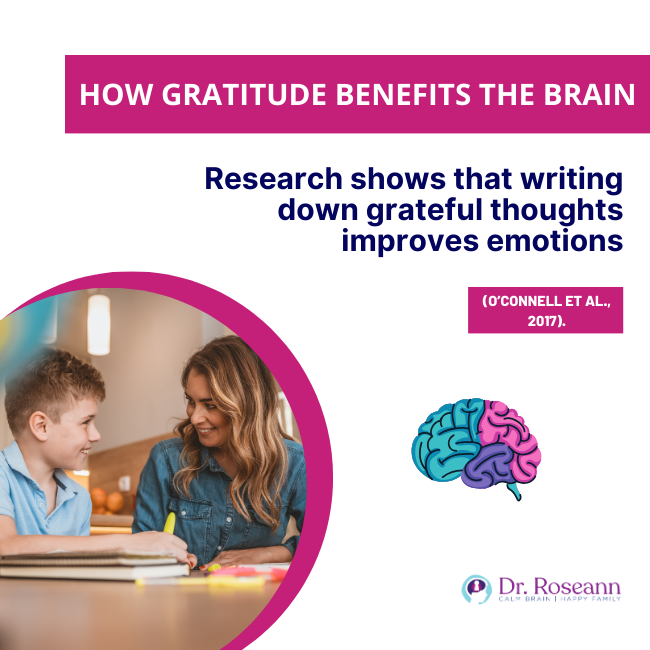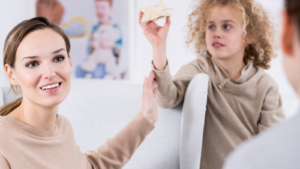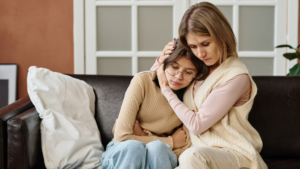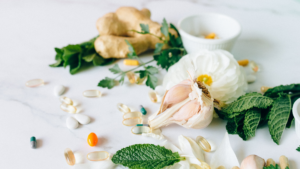Gratitude doesn’t just happen… you have to add in little changes to cultivate it mindfully. Living your life with gratitude is something that we all strive toward. From positive psychology, we know gratitude has many benefits and even has a positive impact on anxiety and depression, as well as other mental health issues.
There are many benefits for ourselves and the people we touch with our gratitude. The daily practice of gratitude helps to bring high levels of happiness and a sense of well-being that counter stress and mental health issues and build resilience.
Why Practice Gratitude?
Each moment we take to acknowledge the blessings in our lives, big or small, serves as a gentle reminder of the abundance surrounding us. We divert our focus from discontentment to appreciation through gratitude. It illuminates our inner peace and contentment.
The act of gratitude infuses our days with joy and fulfillment. It softens life's challenges and offers a perspective that transcends adversity. With gratitude, stress loses its grip and melts away beneath the warmth of thankfulness. With each expression of gratitude, we fortify our mental fortitude and cultivate resilience that weathers life's storms with grace and strength.
Beyond its impact on mental well-being, gratitude extends its gentle touch to physical health. Studies have shown that those who practice gratitude tend to engage in healthier habits, improving overall well-being (Killen & Macaskill, 2014).
Here are tips to help kids and adults become more grateful, which has science-backed benefits for mental health and health benefits.
1. Feel and express gratitude
With gratitude comes an appreciation of all the things that life brings, big and small, and good and bad. When your heart is full of gratitude, there isn’t room for negative emotions, and positivism and good feelings arise. Expressing gratitude to others is a beautiful way to cultivate the practice.
2. Commit to being grateful
At least once a day, say aloud to another person, “I am grateful for…” to create a healthy habit that makes others and yourself feel good. Noticing the good things and actions around us deepens the mindfulness needed to be grateful.
3. Shift your language, shift your thinking
When you consciously adopt positive gratitude language, you initiate a profound transformation within your mindset. It's not just about the words you speak or think; it's about rewiring the very pathways of your brain. Expressing gratitude by consistently framing your thoughts and expressions, you initiate a robust dialogue with your mind, shaping its perception of reality.
4. Set aside time for gratitude practices
Healthy habits take time but develop quickly when you incorporate them into your routine. Consider incorporating gratitude practices into your everyday life. Start with your morning routine.
Allow the first rays of sunlight to illuminate your day with a sense of thankfulness. Whether through journaling, meditation, or simply reflecting on the blessings in your life, dedicating these precious moments to gratitude sets a positive tone for the day ahead.
5. Let people know you are working on being more grateful
When we declare our goals, they are more likely to happen. Asking friends and family to join you in developing a gratitude practice can not only help you, but it can also have the added benefit of helping others.
7. Use a Gratitude Journal
Gratitude journals are a great tool to promote mental health and can be used by all ages. Daily actions like writing in a gratitude journal promote a sense of well-being, leading to more extended periods of happiness. As much as we like to think that we can quickly develop habits, we need consistent practice for our brains to build healthy gratitude behaviors.
One study looked at how different ways of writing about gratitude in a journal can make people feel better. They asked nearly 200 people, primarily women, to keep a journal for three months. The results showed that writing about gratitude and how you behave towards others can improve your emotions, especially if you're feeling down. This suggests that being thankful to others is essential for feeling happier, even during a tough time (O’Connell et al., 2017).
8. Focus on the Lotus in the Mud
When we have gratitude for the lessons we gained during stressful situations, those problem-solving skills make us resilient and build a greater sense of control. Gratitude is a transformative lens through which we perceive the challenges and adversities life inevitably throws us.
Instead of viewing stressful situations as obstacles to overcome, gratitude allows us to recognize them as invaluable opportunities for growth and learning.
9. Have Gratitude Reminders
Objects, pictures, and sticky notes that remind you of who and what you are grateful for are an easy way to stay positive. Incorporating gratitude reminders into your daily life acts as gentle nudges from the universe, guiding your focus toward the abundance and blessings surrounding you. These tangible cues serve as reminders of the many reasons to be grateful.
10. Visualize Happy Moments
Taking a moment to engage in visualization is akin to painting the canvas of your mind with vibrant strokes of positivity and gratitude. As you close your eyes and conjure images of cherished people, beloved places, and heartwarming events, you invite positive aspects into your consciousness, illuminating the darkest corners with the light of appreciation.
11. Stop the Negative Chat
Whether it is a negative comment on social media, a comment about someone else, or your negative self-talk, switch to grateful language, and the negativity loop breaks. Whether the toxic comments that permeate social media, the gossip whispered behind closed doors, or the relentless barrage of self-criticism echoing in your mind, the antidote lies in the transformative power of grateful language.
12. Take a Gratitude Walk
Nature has a powerful impact on the brain and body. When we are out and exercising, we experience a release of feel-good endorphins. Taking time to be mindful of nature's beauty can be integral to one’s gratitude practice.
13. Say, “ Thank You”
Saying thank you can positively affect the receiver and the giver. The people in your life will appreciate your grateful language. We all like to be appreciated and saying thank you when someone provides a service or helps us goes a long way.
14. Begin and End Your Day With Gratitude
You can only control your mind, and this simple action sets a positive intention for your day. At night, when we focus on what was good about our day, we focus on the positive. Beginning and ending your day with gratitude is akin to bookending your life's chapters with positivity and appreciation.
These simple yet profound actions serve as anchors that ground you in a mindset of abundance and thankfulness, regardless of life's ebbs and flows.
15. Smile
Smiling cascade of feel-good endorphins that are released naturally reduces stress levels, which makes us more connected to our mind, body, and spirit. Smiles are infectious and a great way to pass gratitude along.
How can a gratitude jar or gratitude letter help you be thankful?
A gratitude jar or letter offers a concrete way to express and reflect on the blessings in your life. By actively recording moments of gratitude through notes in a jar or written letters, you reinforce a mindset of appreciation and thankfulness. These practices are potent reminders of the abundance surrounding you, fostering a more profound sense of gratitude and contentment in your own life.
How does cultivating gratitude create more positive emotions?
Cultivating gratitude takes your focus from what's lacking to what you have, fostering feelings of abundance and satisfaction. By consistently acknowledging and appreciating the good in your life, you train your brain to notice the positive aspects of your experiences, leading to increased feelings of joy, contentment, and happiness.
What daily gratitude practice or gratitude rituals can help the best?
Daily gratitude practices such as gratitude journaling, expressing thanks to others, or meditating on gratitude can be highly effective. These rituals encourage you to actively seek out moments of appreciation in your daily life, reinforcing a mindset of gratitude and positivity. Consistency is key, so finding a practice that resonates with you and integrating it into your daily routine can yield the most benefit.
How can a positive mindset or positive emotions provide a deeper appreciation of life?
A positive mindset or positive emotions allow you to perceive life through a lens of optimism and gratitude. By focusing on the good in your experiences and embracing a hopeful outlook, you build a deeper appreciation for the beauty, wonder, and abundance surrounding you. This heightened appreciation enriches your life, fostering fulfillment, connection, and joy in everyday experiences.
Citations
Killen, A., & Macaskill, A. (2014). Using a Gratitude Intervention to Enhance Well-Being in Older Adults. Journal of Happiness Studies, 16(4), 947–964. https://doi.org/10.1007/s10902-014-9542-3
O’Connell, B. H., O’Shea, D., & Gallagher, S. (2017). Feeling Thanks and Saying Thanks: A Randomized Controlled Trial Examining If and How Socially Oriented Gratitude Journals Work. Journal of Clinical Psychology, 73(10), 1280–1300. https://doi.org/10.1002/jclp.22469
Dr. Roseann is a mental health expert in Mental Health who is frequently in the media:
- Break the Rules Podcast Overcoming Anxiety & Mental Health Disorders.
- Reconditioned with Laurie Vaknine (Podcast) Managing Anxiety & Mental Health in Children.
- Everyday Wellness Podcast: Neurofeedback and Teen Mental Health
Always remember… “Calm Brain, Happy Family™”
Disclaimer: This article is not intended to give health advice and it is recommended to consult with a physician before beginning any new wellness regime. *The effectiveness of diagnosis and treatment vary by patient and condition. Dr. Roseann Capanna-Hodge, LLC does not guarantee certain results.
Are you looking for SOLUTIONS for your struggling child or teen?
Dr. Roseann and her team are all about science-backed solutions, so you are in the right place!
Grab your complimentary copy of
147 Therapist-Endorsed Self-Regulation Strategies for Children: A Practical Guide for Parents
Dr. Roseann is a Children’s Mental Health Expert and Licensed Therapist who has been featured in/on hundreds of media outlets including The Mel Robbins Show, CBS, NBC, PIX11 NYC, Today, FORBES, CNN, The New York Times, The Washington Post, Business Insider, Women’s Day, Healthline, CNET, Parade Magazine and PARENTS. FORBES called her, “A thought leader in children’s mental health.”

She coined the terms, “Re-entry panic syndrome” and “eco-anxiety” and is a frequent contributor to media on mental health.
Dr. Roseann Capanna-Hodge has three decades of experience in working with children, teens and their families with attention-deficit hyperactivity disorder (ADHD), autism, concussion, dyslexia and learning disability, anxiety, Obsessive Compulsive Disorder (OCD), depression and mood disorder, Lyme Disease, and PANS/PANDAS using science-backed natural mental health solutions such as supplements, magnesium, nutrition, QEEG Brain maps, neurofeedback, PEMF, psychotherapy and other non-medication approaches.
She is the author of three bestselling books, It’s Gonna Be OK!: Proven Ways to Improve Your Child's Mental Health, The Teletherapy Toolkit, and Brain Under Attack. Dr. Roseann is known for offering a message of hope through science-endorsed methods that promote a calm brain.
Her trademarked BrainBehaviorResetⓇ Program and It’s Gonna be OK!Ⓡ Podcast has been a cornerstone for thousands of parents facing mental health, behavioral or neurodevelopmental challenges.
She is the founder and director of The Global Institute of Children’s Mental Health, Neurotastic™Brain Formulas and Dr. Roseann Capanna-Hodge, LLC. Dr. Roseann is a Board Certified Neurofeedback (BCN) Practitioner, a Board Member of the Northeast Region Biofeedback Society (NRBS), Certified Integrative Mental Health Professional (CIMHP) and an Amen Clinic Certified Brain Health Coach. She is also a member of The International Lyme Disease and Associated Disease Society (ILADS), The American Psychological Association (APA), Anxiety and Depression Association of America (ADAA) National Association of School Psychologists (NASP), International OCD Foundation (IOCDF).
© Roseann-Capanna-Hodge, LLC 2024
Disclaimer: This article is not intended to give health advice and it is recommended to consult with a physician before beginning any new wellness regime. *The effectiveness of diagnosis and treatment vary by patient and condition. Dr. Roseann Capanna-Hodge, LLC does not guarantee certain results.











